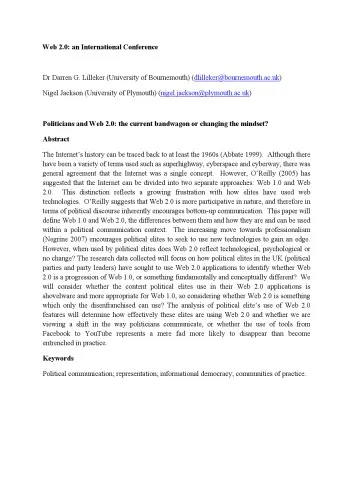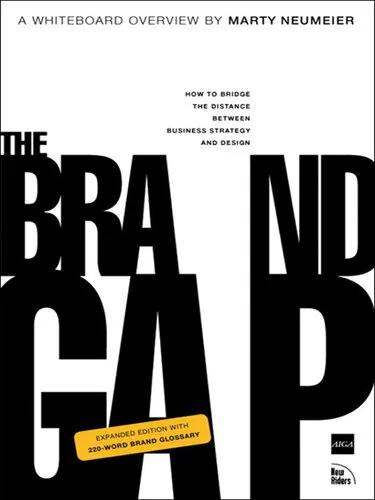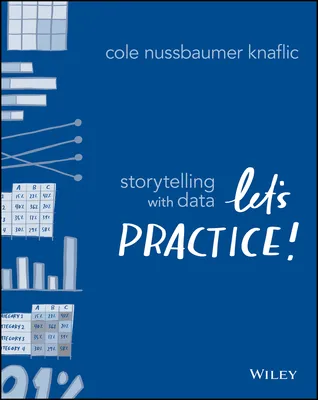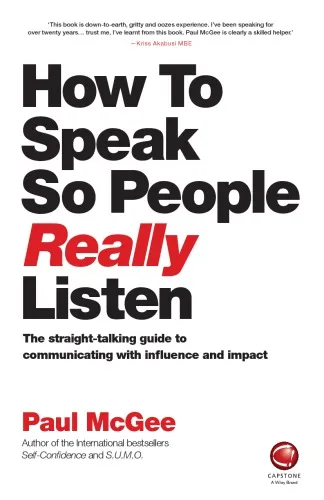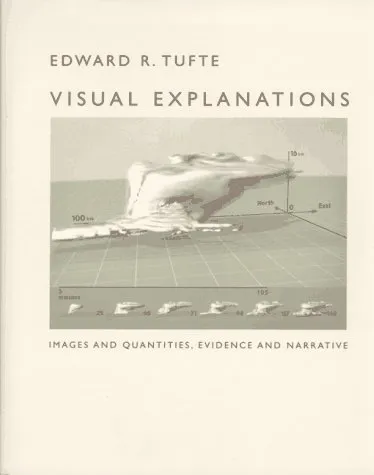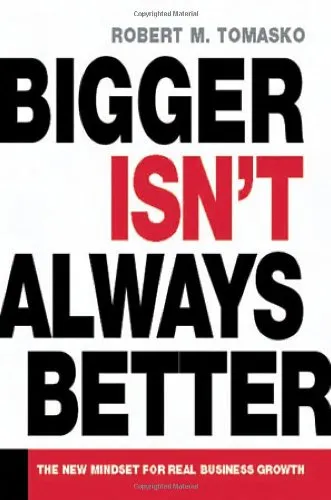Politicians and Web 2.0: the current bandwagon or changing the mindset?
4.2
Reviews from our users

You Can Ask your questions from this book's AI after Login
Each download or ask from book AI costs 2 points. To earn more free points, please visit the Points Guide Page and complete some valuable actions.Related Refrences:
Introduction
The intersection of politics and technology has never been more significant than it is today. In 'Politicians and Web 2.0: the current bandwagon or changing the mindset', we delve into the transformative impact of Web 2.0 technologies on the political landscape. The emergence of platforms that foster user-generated content, real-time communication, and broader citizen participation has presented both opportunities and challenges for politicians worldwide. This book seeks to answer a critical question: Are politicians embracing these tools as a superficial trend, or are they genuinely shifting their paradigms to adapt to an increasingly connected society?
The rise of Web 2.0 has not only redefined how information is disseminated but has also altered the dynamics of political campaigns, public discourse, and governance. For decision-makers, navigating these digital currents is no longer optional—it has become essential. This book critically examines whether the adoption of Web 2.0 platforms represents mere compliance with temporary trends or a fundamental rewiring of the political mindset. Across its chapters, it offers evidence, analysis, and insight into how leaders use these platforms and whether their usage aligns with democratic ideals of transparency, inclusivity, and engagement.
Detailed Summary
At the heart of the book is an exploration of how Web 2.0 transforms the relationship between politicians and their constituents. Divided into several thematic sections, the book explores the promise and pitfalls of Web 2.0 technologies in political discourse:
- The Basics of Web 2.0: Introducing the core characteristics of Web 2.0, such as interactivity, user-generated content, and social media platforms, the book sets the stage for understanding its implications for politics.
- From Traditional Campaigns to Digital Strategies: This section evaluates how political campaigns have shifted from door-to-door canvassing and TV ads to trending hashtags and viral videos. It highlights case studies of successful and failed attempts at using Web 2.0 for political campaigns.
- Symbolism or Substance: A critical look at whether politicians are using Web 2.0 platforms for meaningful engagement or mere optics. Are social media accounts tools for the public good, or are they just another way to control the narrative?
- Citizen Participation: Examining whether Web 2.0 tools empower citizens to influence policy and decision-making or whether they are weaponized for political gains.
- Challenges and Limitations: Addressing the darker sides of Web 2.0, including misinformation, echo chambers, and data privacy challenges, and their implications for democracy.
This summary illustrates that the book is as much about scrutinizing political behavior as it is about exploring technology's potential to reshape democracies, for better or worse.
Key Takeaways
- Web 2.0 platforms are reshaping how politicians interact with their constituents, fostering both opportunities and ethical dilemmas.
- The real power of Web 2.0 lies in authentic dialogue and engagement rather than mere self-promotion or propaganda.
- Citizens hold increasing influence in political discourse, yet this new power comes with the responsibility of discerning truth in an age of misinformation.
- The future of Web 2.0 in politics depends on both the technological evolution of platforms and the willingness of political leaders to move beyond superficial engagement to genuine collaboration.
Famous Quotes from the Book
“Web 2.0 has turned the microphone toward the people. The question is whether politicians are listening or merely waiting for their turn to speak louder.”
“The greatest illusion of Web 2.0 is that visibility equates to impact. True influence requires interaction, not just impressions.”
“Minds won't change and communities won’t grow unless we learn to use these tools for connection, not control.”
Why This Book Matters
In an age where digital technology dominates everyday interactions, understanding how politicians leverage Web 2.0 platforms is both timely and vital. This book is not just an academic critique of how leaders embrace—or fail to embrace—technological change. It is a call to action for all stakeholders in the democratic process: politicians, technologists, and citizens alike.
The insights offered in this book hold value beyond political institutions; they inspire readers to think deeply about their role in shaping democratic discourse in a digital-first world. As technology continues to evolve, so too must our expectations and standards for political engagement. 'Politicians and Web 2.0' reminds us that while tools may change, ideals like transparency, accountability, and inclusivity must remain at the core of our political systems.
Free Direct Download
You Can Download this book after Login
Accessing books through legal platforms and public libraries not only supports the rights of authors and publishers but also contributes to the sustainability of reading culture. Before downloading, please take a moment to consider these options.
Find this book on other platforms:
WorldCat helps you find books in libraries worldwide.
See ratings, reviews, and discussions on Goodreads.
Find and buy rare or used books on AbeBooks.
1183
بازدید4.2
امتیاز0
نظر98%
رضایتReviews:
4.2
Based on 0 users review
Questions & Answers
Ask questions about this book or help others by answering
No questions yet. Be the first to ask!
